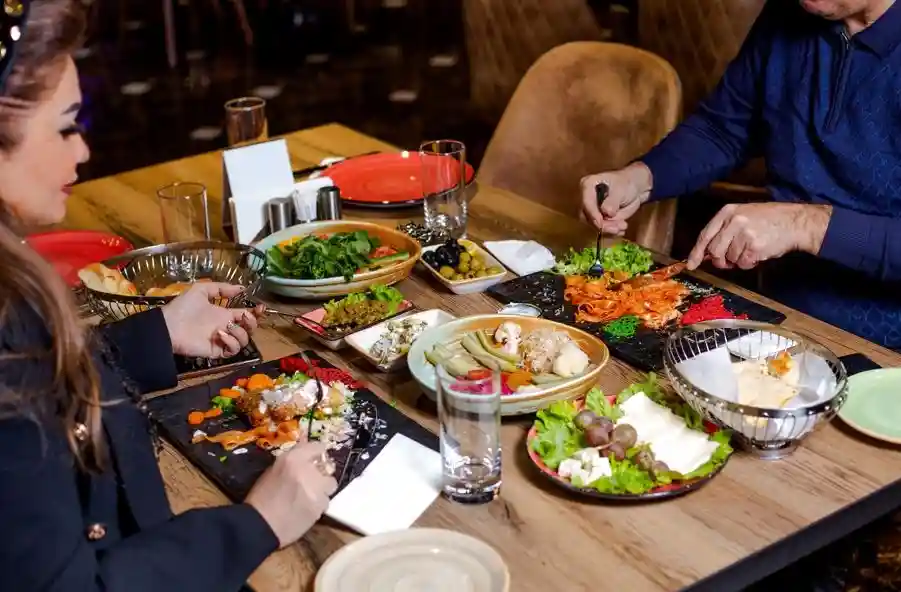In the realm of culinary delights, the clash of tradition and innovation has given birth to an exciting culinary debate: traditional cuisine vs. fusion cuisine. As food lovers around the world weigh the merits of these two approaches, we embark on a flavourful journey to explore the nuances, creativity, and cultural significance behind these culinary styles.
1. Traditional Cuisine: Preserving Culinary Heritage
Ancestral Recipes:
Traditional cuisine is the embodiment of centuries-old culinary wisdom passed down through generations. These recipes are steeped in cultural history and are the foundation of a nation’s culinary identity.
Cultural Significance:
Traditional dishes often have deep cultural significance, associated with rituals, celebrations, and regional pride. They serve as a link to a community’s heritage.
2. Fusion Cuisine: The Art of Culinary Fusion
Creativity Unleashed:
Fusion cuisine is a celebration of culinary creativity, where chefs blend flavours, techniques, and ingredients from different culinary traditions to create something entirely new and unique.
Global Inspiration:
Fusion cuisine draws inspiration from global culinary landscapes, offering a diverse array of dishes that reflect the multicultural world we live in.
3. The Flavourful Debate: Traditional vs. Fusion
Authenticity vs. Innovation:
Traditional cuisine focuses on preserving authentic recipes, emphasising the purity of flavours and techniques. In contrast, fusion cuisine thrives on innovation, pushing boundaries to create unexpected taste experiences.
Comfort vs. Adventure:
Traditional dishes often evoke a sense of comfort and nostalgia, while fusion cuisine invites diners on an adventurous journey of flavours and textures.
4. Traditional Cuisine: Celebrating Culinary Roots
Exquisite Simplicity:
Traditional dishes rely on a limited set of ingredients and time-honoured techniques to bring out the best in each component. It’s all about the essence of pure flavours.
Regional Diversity:
Traditional cuisine varies dramatically from region to region, showcasing the diverse ingredients and cooking methods influenced by geography, climate, and culture.
5. Fusion Cuisine: A World of Possibilities
Innovative Pairings: Fusion cuisine thrives on experimentation, combining unexpected ingredients to create dishes that challenge and delight the palate.
Cross-Cultural Blends: Chefs draw inspiration from global cuisines, merging flavors from different cultures to craft dishes that transcend borders.
6. The Culinary Experience: Traditional vs. Fusion
Embracing Tradition:
Traditional cuisine offers a deep connection to cultural roots and a sense of nostalgia for those who grew up with these flavours. Dining on traditional dishes is like taking a trip back in time.
A Culinary Adventure:
Fusion cuisine appeals to those seeking novelty and excitement in their dining experiences. Each bite is a surprise, and every meal is an exploration of new flavours.
7. Traditional Cuisine: Culinary Heritage in Jeopardy?
Preservation Challenges:
In the face of globalisation and changing culinary preferences, traditional cuisine can face challenges in preserving its authenticity and cultural relevance.
Adaptation and Revival:
Many regions are adapting traditional recipes to modern tastes and reviving interest in these culinary treasures, striking a balance between preservation and adaptation.
8. Fusion Cuisine: Embracing Globalisation
Food Without Borders:
Fusion cuisine reflects the interconnected world we live in, celebrating the beauty of cultural exchange and culinary cross-pollination.
Blurring Culinary Lines:
Fusion cuisine challenges the notion of strict culinary boundaries, inviting chefs to blur the lines between traditions and create culinary fusions that surprise and delight.
9. The Future of Flavour: Traditional and Fusion’s Coexistence
Harmonious Coexistence:
Rather than pitting traditional against fusion, many culinary enthusiasts and chefs advocate for a harmonious coexistence, recognising that both styles have their place on the culinary stage.
Innovation Meets Heritage:
Some chefs are using fusion techniques to breathe new life into traditional dishes, creating innovative yet culturally rooted culinary experiences.
10. The Ultimate Culinary Experience: Personal Preference
Food as Personal Expression:
The choice between traditional and fusion cuisine often comes down to personal preference. Some may find comfort in the familiarity of traditional flavours, while others crave the excitement of fusion creations.
Exploring Both Worlds:
Food lovers can enjoy the best of both worlds by alternating between traditional and fusion dining experiences, embracing the diversity of flavours available.
Savouring the Culinary Debate
In the delightful world of food, the traditional vs. fusion debate is a testament to the ever-evolving nature of culinary artistry. Whether you find joy in the comforting embrace of a traditional dish or the thrill of a fusion creation, the essence of culinary exploration lies in savouring the diverse, flavourful, and endlessly creative world of food. Ultimately, the true winner in this tasty debate is the food enthusiast who has the privilege of savouring the rich tapestry of flavours that both traditions and innovations bring to the table.

